TU/ecomotive presents 75 percent recyclable car
Student team TU/ecomotive is presenting its new car today: Phoenix. The electric vehicle is 75 percent recyclable and can be used to make next-generation cars. That’s a major difference with the current generation of cars, which are only 21 percent recyclable. The students are hoping to inspire the automotive industry with their smart design.
Every year, more than six million cars end up in scrapyards in Europe, creating millions of tons of waste. This is why, in creating Phoenix, TU/ecomotive aimed for as high a percentage of closed-loop recycling as possible, so the materials can be recovered to make new cars.
The team came across the European Commission (EC) directive on end-of-life vehicles, intended to promote circularity and sustainability in the automotive industry. This says that new cars should include at least 25 percent of recycled plastics 2035, 25% of which must come from end-of-life cars. This comes down to a total of 6.5 percent of close-loop recycling. The proposed directive is yet to be approved by the European Parliament.
The team decided to find out how much plastic would be equal to 6.5 percent. “This worked out to about 12 kilograms,” says Computer Science student Stijn Harks (23), software and electrical engineer in the team. “You can’t even make a dashboard out of that.”
Closed-loop
That percentage or reusable components could be a lot higher, the team thought. “But when we talked it over with our partners in the automotive industry, they indicated they actually found the EC’s plan too ambitious,” says the team’s business manager and Industrial Engineering student Eduardo Luna (23). “The car manufacturers said the problem was the quality of the components, which is too low for closed-loop recycling, and that cars weren’t designed to be recycled that way.”
The team then decided to design a car geared specifically toward closed-loop recycling. The students applied ‘mono-material structures’, in which as few different materials as possible are used. These are then connected to each other using smart fastening methods, which means that the quality of the components deteriorates less quickly and they can therefore be reused in similar applications.
“We are proud to say we achieved a percentage of 75 percent,” says Luna. “And even 78 percent for the recycling of plastic. That’s over eight hundred kilograms.”
Batteries
As batteries in electric vehicles are very hard to recycle, the team came up with a system that extends their lifespan. Phoenix has six fixed batteries and four removable batteries. The latter are only used for long distances, which increases the driving range by over sixty percent. This means the batteries are used less intensively and they last longer.
When the batteries aren’t in use, they can be used at home. “To store solar power, for example,” says Harks. “But also to store energy inside the house.”
In addition, the team came up with a lease system, whereby people can rent the batteries when they’re going on vacation, for instance. “That’s especially good for car manufacturers, as they’ll need to make fewer battery packs than cars. So it’s also cost-effective.”
Brussels
After today’s presentation, the team will take the car to the Dutch Design Week and the electronica trade fair in Munich. They’ll also pay visits to three universities of technology in Sweden, Denmark, and Germany, as well as to Volvo and other car manufacturers. “And we might go to Brussels when the directive is discussed in the European Parliament,” says Luna.
TU/ecomotive hopes Phoenix will inspire car manufacturers to design circular cars. Luna: “If we can develop such a car in a year, then hopefully car manufacturers, with all their resources, can take our idea and run with it.”
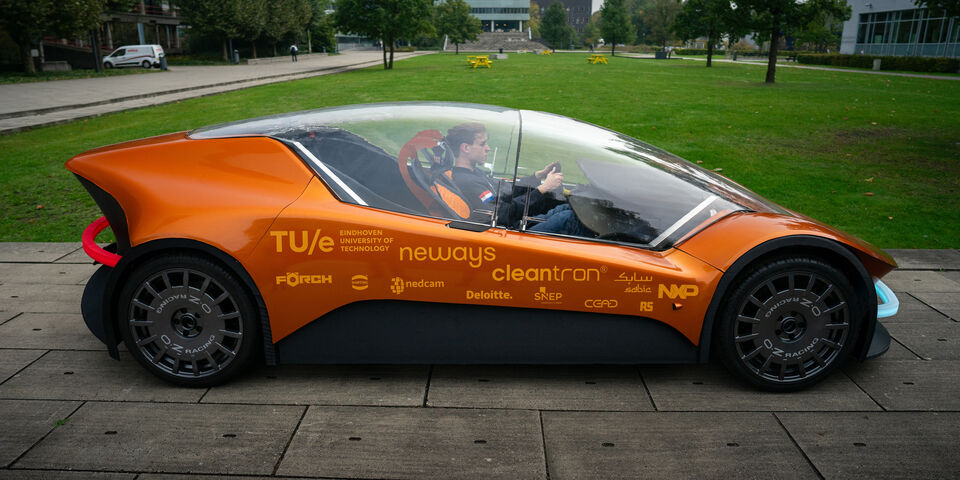

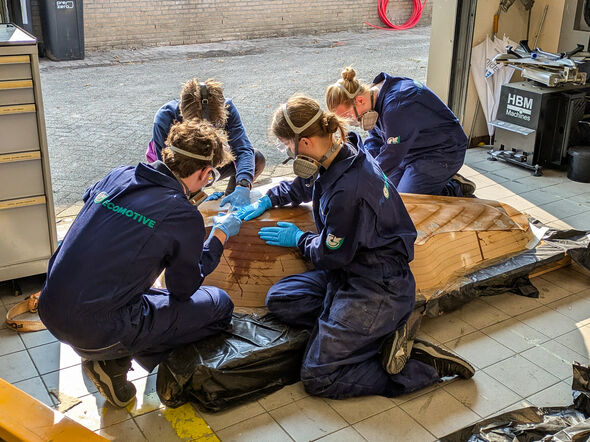
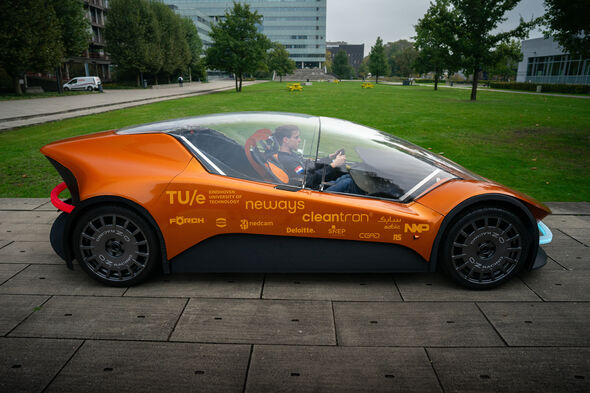
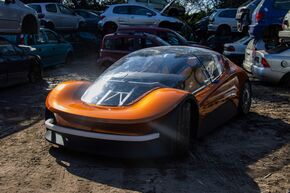
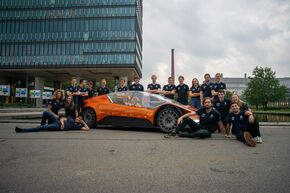
Discussion